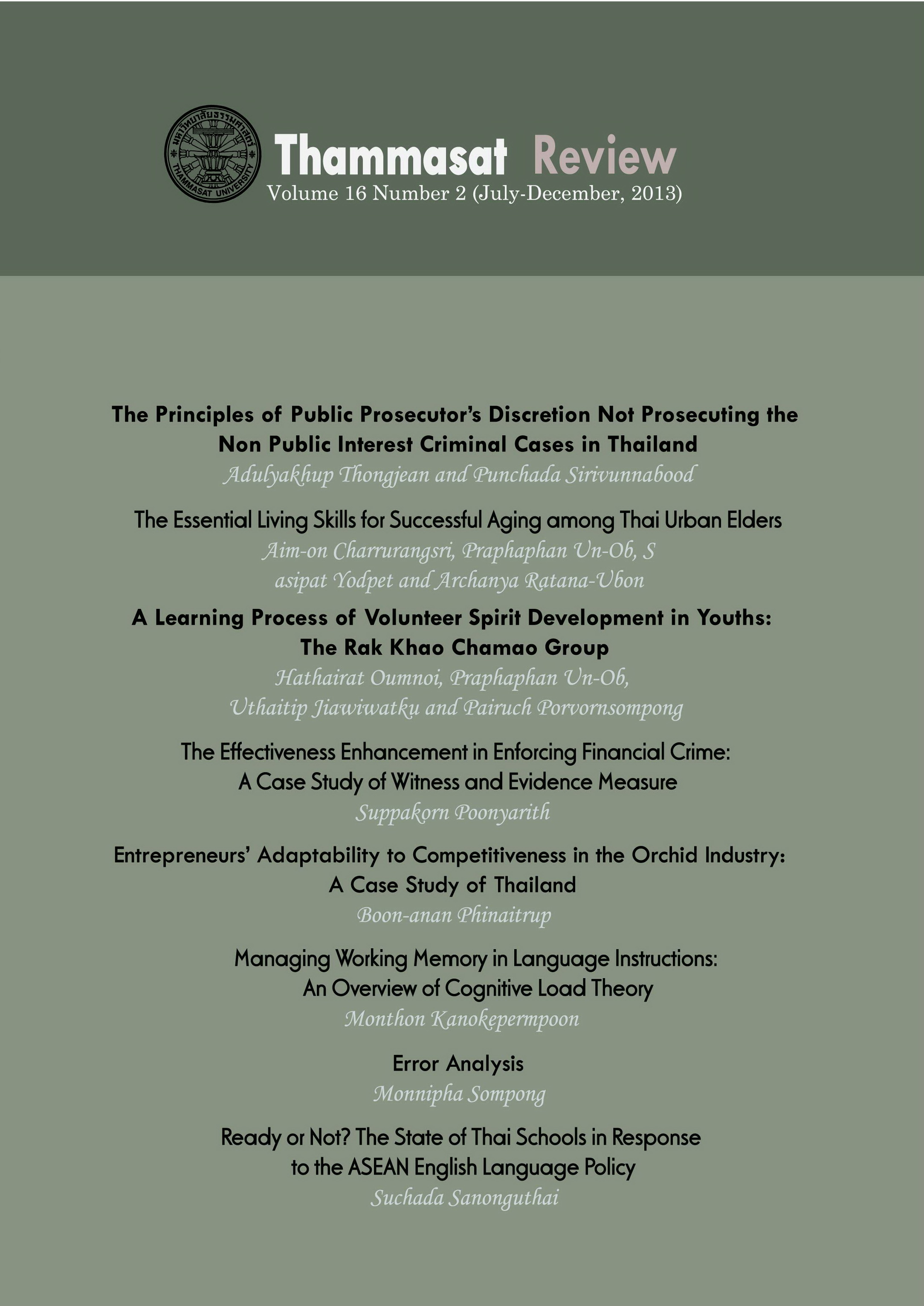Error Analysis
Abstract
In language learning, mistakes and errors have been inevitably produced. Learners make errors in the process of constructing a new system of the language they are acquiring. Thus, learners’ errors have long interested many researchers in the field of second language acquisition (Corder, 1981; Ellis, 2008). This paper presents major approaches used in studies on native language interference (also known as language transfer, L1 interference, and linguistic interference) as well as various aspects of error analysis including definitions of errors, their significance in language teaching and learning, classification of errors, causes of errors, and previous studies on error analysis.
Keywords: Error Analysis, Language Learning, New Language System
Downloads
How to Cite
Issue
Section
License
The opinions and ideas expressed in all submissions published in Thammasat Review are solely that of the author(s) and do not necessarily reflect that of the editors or the editorial board.
The copyright of all articles including all written content and illustrations belong to Thammasat Review. Any individuals or organisation wishing to publish, reproduce and distribute a particular manuscript must seek permission from the journal first.








